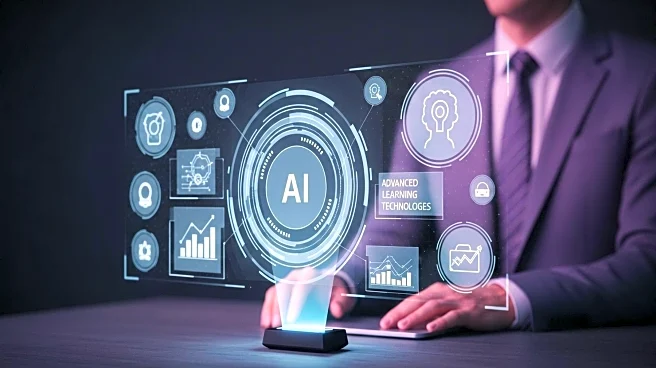What's Happening?
A report from the Association for Talent Development emphasizes the need for talent development professionals to improve their skills in selecting appropriate learning technologies for their organizations. The report, released on October 2, highlights that while many organizations have not yet implemented AI-enabled learning technology, there is a growing intention to do so for developing learning content. Of the 362 professionals surveyed, approximately 60% feel confident in assessing their organizations' needs regarding learning tech, yet nearly half find it challenging. Johann Laville, Chief Learning Officer at Merck, notes that the ability to choose suitable learning technologies was not traditionally part of a learning professional's skill set. He stresses the importance of evolving these skills to ensure decisions are made in the best interest of the organization and its people. Commonly used technologies include learning management systems, e-learning authoring tools, and assessment tools.
Why It's Important?
The report underscores the increasing significance of technology assessment skills for learning and development (L&D) leaders, especially as organizations plan to integrate AI into their learning strategies. This shift could impact the roles of L&D professionals, as they may need to adapt to new technological demands to remain relevant. The potential for AI to replace certain roles has been a concern among learning leaders, yet many express confidence in their positions and note a budget increase for L&D in 2025. As technology continues to evolve, the ability to select and implement the right tools becomes crucial for maintaining effective talent development strategies and ensuring organizational growth.
What's Next?
Organizations are likely to continue exploring AI-enabled learning technologies, which may lead to further changes in the roles and responsibilities of talent development professionals. As these technologies become more prevalent, L&D leaders will need to focus on developing their IT skills to make informed decisions about technology adoption. This evolution may also prompt organizations to invest in training and development programs to equip their teams with the necessary skills to navigate the changing landscape. Stakeholders, including business leaders and HR departments, will need to collaborate to ensure that technology choices align with organizational goals and employee needs.
Beyond the Headlines
The integration of AI in learning technologies raises ethical considerations, such as data privacy and the potential for bias in AI algorithms. Organizations must address these issues to ensure that technology adoption does not compromise employee trust or lead to unintended consequences. Additionally, the shift towards AI-enabled learning may influence cultural dynamics within organizations, as employees adapt to new ways of learning and interacting with technology. Long-term, this could lead to a transformation in how organizations approach talent development and employee engagement.











